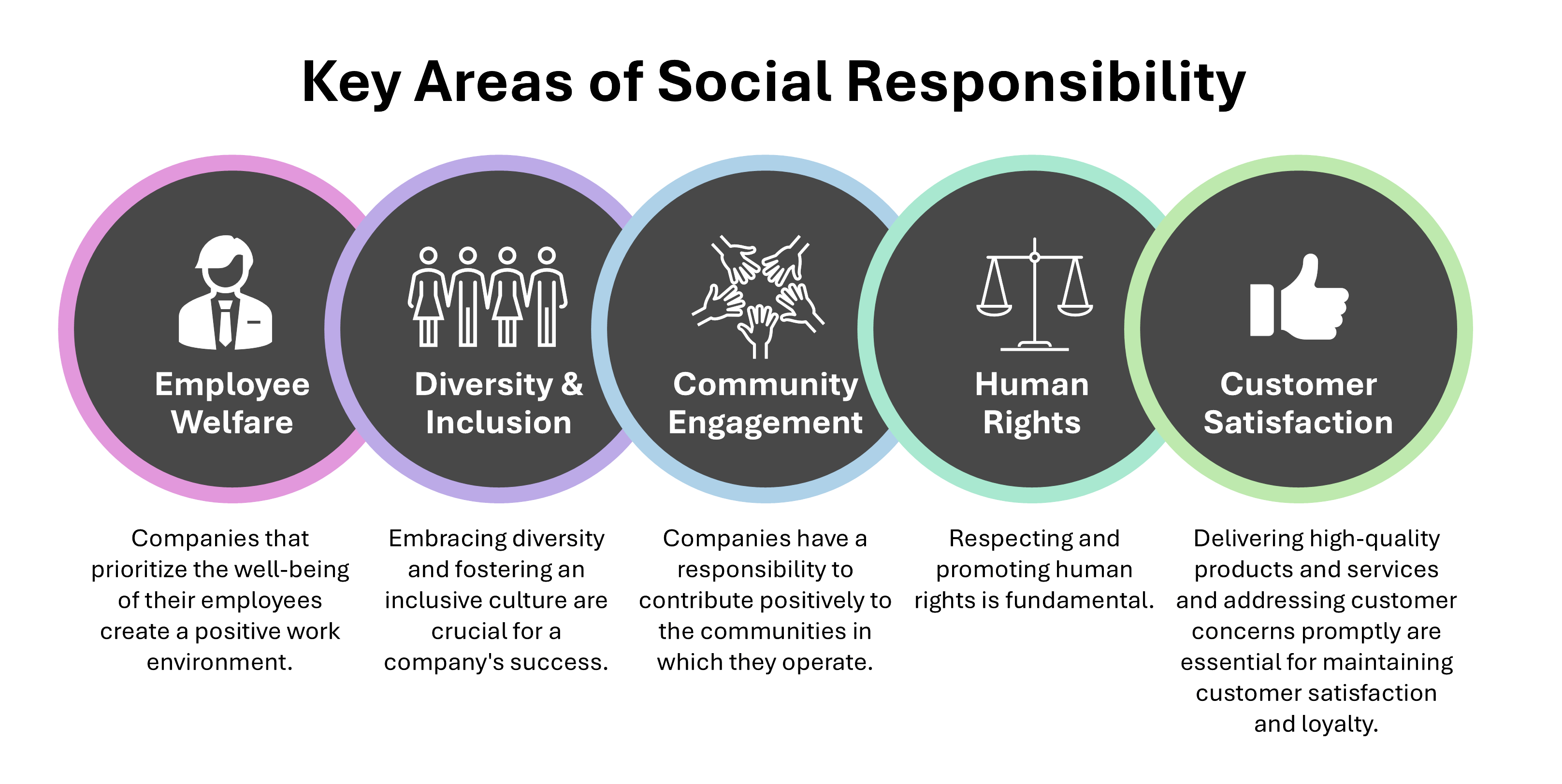The Vital Role of Social Responsibility in ESG
Part 3 of a 4-Part Series
By Staci Hegarty, M.Ed.
Environmental, Social, and Governance (ESG) criteria have become a cornerstone in evaluating a company’s ethical impact and sustainability. While the environmental and governance aspects are essential, the social (S) component is equally critical in driving a company’s long-term success and impact. Here’s why social responsibility is indispensable in the ESG framework.
Understanding the ‘S’ in ESG
The social component of ESG refers to a company’s relationships with its stakeholders, including employees, customers, suppliers, and the communities in which it operates. It encompasses various factors such as labor practices, diversity and inclusion, community engagement, human rights, and customer satisfaction. Essentially, it evaluates how a company manages its social impact and ensures its operations benefit society.
Five Key Areas of Social Responsibility
- Employee Welfare: Companies that prioritize the well-being of their employees create a positive work environment. This includes offering fair wages, ensuring safe working conditions, providing opportunities for career growth, and promoting work-life balance. Happy and healthy employees are more productive, loyal, and innovative.
- Diversity and Inclusion: Embracing diversity and fostering an inclusive culture are crucial for a company’s success. Diverse teams bring varied perspectives and ideas, driving creativity and innovation. Companies that champion diversity are better equipped to understand and serve their diverse customer base, enhancing their market reach and reputation.
- Community Engagement: Companies have a responsibility to contribute positively to the communities in which they operate. This can involve supporting local businesses, engaging in philanthropy, and participating in community development projects. Strong community ties can enhance a company’s reputation and create a loyal customer base.
- Human Rights: Respecting and promoting human rights is fundamental. This includes ensuring that business practices do not contribute to exploitation, child labor, or unfair labor conditions. Companies committed to human rights foster ethical supply chains and build trust with consumers and investors.
- Customer Satisfaction: Delivering high-quality products and services and addressing customer concerns promptly are essential for maintaining customer satisfaction and loyalty. Companies that prioritize customer needs and provide excellent service are more likely to succeed in competitive markets.

Why Social Responsibility Matters
- Enhanced Reputation: Companies known for their social responsibility are more likely to be trusted and respected by customers, employees, and the broader public. A positive reputation can lead to increased customer loyalty, better employee retention, and enhanced business opportunities.
- Risk Mitigation: By addressing social issues proactively, companies can mitigate risks such as labor strikes, boycotts, and legal challenges. Socially responsible practices help prevent scandals and reputational damage.
- Investor Attraction: Investors are increasingly considering social factors in their investment decisions. Companies with strong social practices are more likely to attract responsible investors looking to support sustainable and ethical businesses.
- Employee Engagement and Retention: Employees want to work for companies that align with their values. Companies that prioritize social responsibility tend to have higher employee engagement and retention rates. A motivated and committed workforce is a significant asset.
- Sustainable Growth: Social responsibility contributes to long-term, sustainable growth. Companies that invest in their employees, communities, and ethical practices build a solid foundation for continued success and resilience in a rapidly changing world.
- Legal and Regulatory Compliance: Governments and regulatory bodies are increasingly focusing on social issues. Companies that adhere to social responsibility standards are better positioned to comply with laws and regulations, avoiding fines and legal issues.

Conclusion
The social component of ESG is not just a box to tick; it is a crucial aspect of a company’s overall impact and success. By prioritizing social responsibility, companies can create a positive impact on society while reaping significant business benefits. Strong social practices enhance reputation, attract investors, engage employees, and contribute to sustainable growth.
Incorporating social responsibility into business strategies is essential for building a resilient and ethical company that thrives in today’s interconnected and socially-conscious world. Let’s give the ‘S’ in ESG the attention it deserves, ensuring that businesses contribute to a better, fairer, and more holistic society.
Visit our website at https://envisionrise.com.